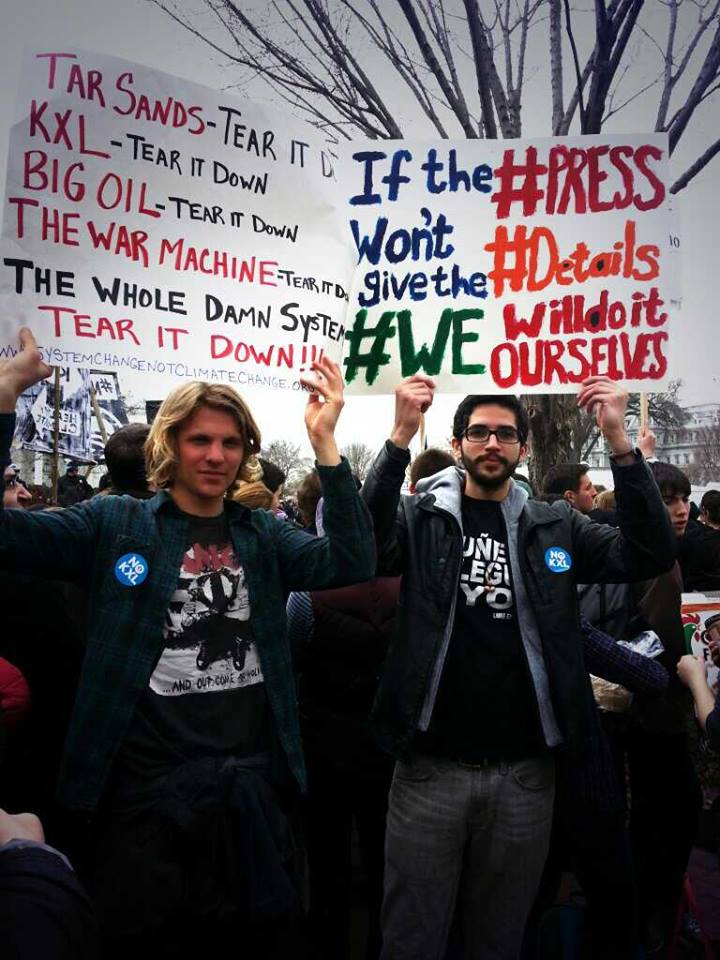On March 2, students from all over the US gathered in Washington D.C. to express their disapproval of the Keystone XL Pipeline’s expansion. A group of Syracuse University students from Divest SU and ESF and Students of Sustainability were among those calling for action against the pipeline. Almost 400 people were arrested, with more than 1,000 taking part in the protest. “Decision makers in DC could turn off their TV sets, but they could not press mute on the protesters shouting for justice outside their buildings,” said Alexander Vélez Burgos, a sophomore philosophy and international relations major.

a fellow student rally outside the White House on
March 2 along with about 1,000 other students from
around the countrycalling on President Obama to reject
the Keystone XL pipeline.
The Keystone XL pipeline, the pipeline’s fourth phase, is an extension of an existing pipeline from Alberta, Canada to refineries in Nebraska, Illinois, and Texas. If approved, it will transport approximately 830,000 barrels of crude oil a day.
Jasmin Durán, a junior international relations major, expressed her frustration with not only the environmental impact the pipeline can have, but its affect on the surrounding communities as well.
“Instead of exacerbating our dependency on ‘dirty oil,’ there should be some efforts focusing on renewable sources of energy,” Durán said. “It’s time to stop exploiting our planet in the way that we have.”
And this is what Durán hoped to achieve marched her way up Pennsylvania Avenue to the White House. The most important success this protest achieved was gathering the youth together against an environmental issue and becoming “proactive forces and agents of change” in this society, she added.
Burgos, who participated in the protest for similar reasons, pointed out the importance of carrying out a person’s actions, instead of simply using words. “I wanted to be part of the society that went to the streets saying, ‘Stop! Rethink what you are doing,’ instead of the docile part of society that kicks back in [their] room posting [on] Facebook whatever ‘trends’ they can criticize to get a couple of ‘likes,”’ Burgos said.
Supporters of the pipeline said it could create tens of thousands of jobs. However, the US Department of State’s report on the Keystone XL Project said it would actually create 1,950 jobs over a 2-year period, with only 50 permanent jobs once the construction is over. “This pipeline won’t really impact the growth of the US economy in the way it is portrayed,” Burgos said. According to the report, the pipeline will add only 0.02 percent to the US’s gross domestic product. According to a report done by the Carbon Tracker Initiative, if built, the KXL will emit as much carbon in its lifetime as the annual emissions of one billion cars.
These consequences were obvious to Ella Mendonsa, a junior political science and policy studies major. “The Keystone XL pipeline is one of the few fossil fuel projects being implemented on a national level that will cause new fresh damage and pollution on such a large scale,” she added. After numerous people joined together and protested for what they believed in, Mendonsa thinks “Obama has taken note . . . at the very least this protest has galvanized our generation into working together to achieve political action on climate change.”





